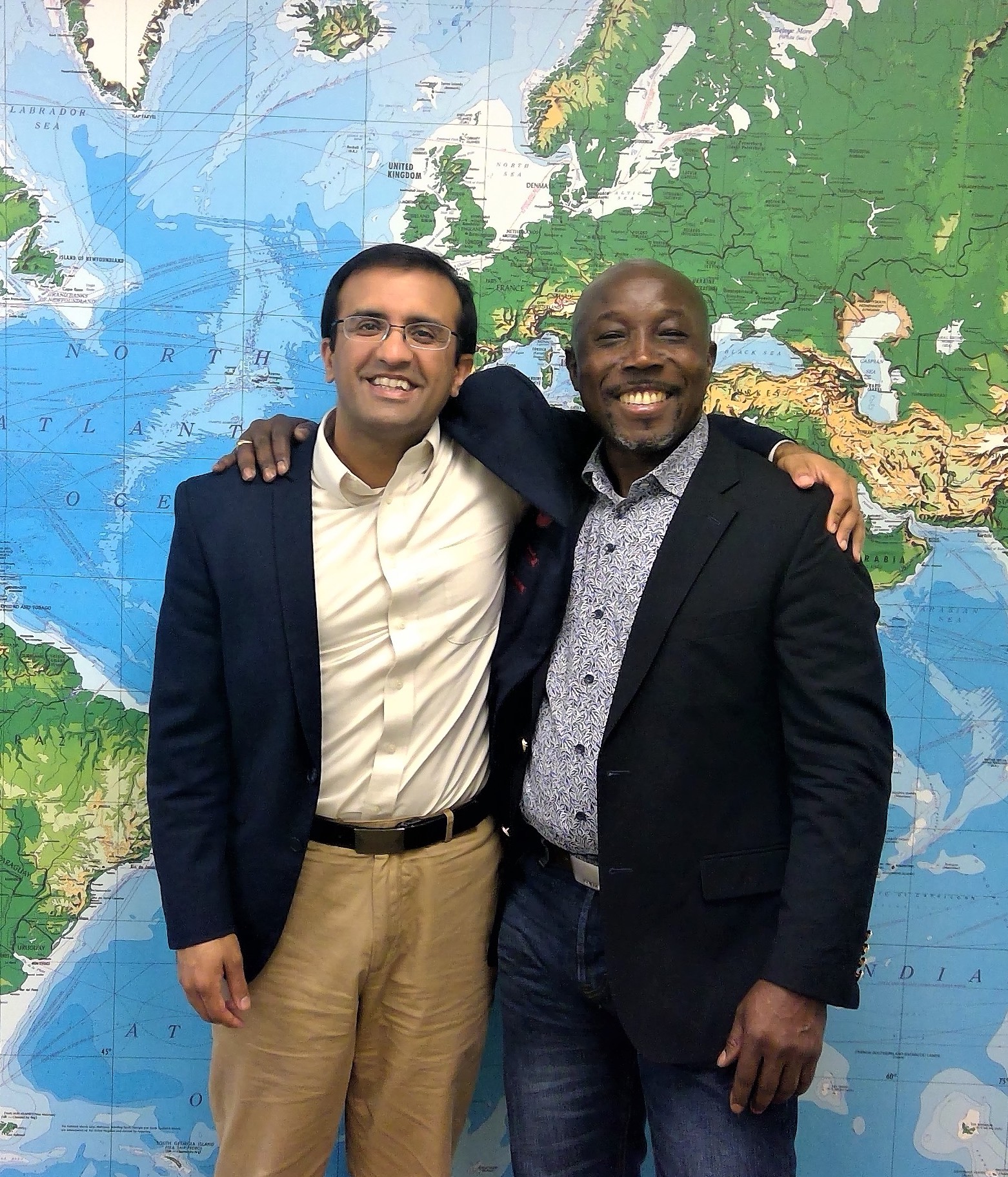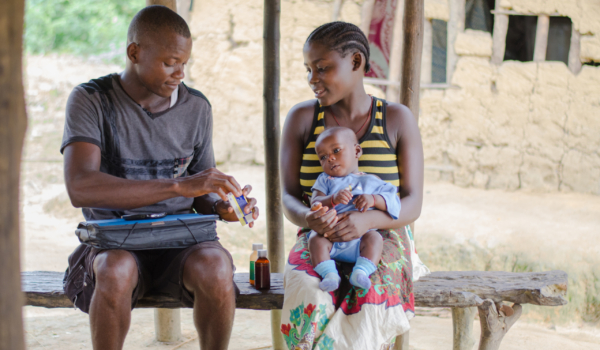
Last Mile Health CEO Raj Panjabi and Magnus Conteh, Executive Director of the Community Health Academy
Magnus Conteh joined the Last Mile Health team earlier this year as the Executive Director of the Community Health Academy, tasked with the job of translating the bold vision of the 2017 TED Prize wish into reality. Throughout his 25-year career, Magnus has been at the forefront of the collision between global health and digital education.
“Magnus is just the visionary leader we need to leverage the growing momentum for the Community Health Academy to ensure we realize its transformative potential on a global scale,” says Raj Panjabi, CEO of Last Mile Health. “Not only does he bring a wealth of experience in building technology-enabled community health systems across several countries in Africa and expertise in education, technology, and global health, but he brings an inspiring passion and humility to this work. We are deeply grateful to have Magnus on the Last Mile Health team.”
Magnus was born and raised in Sierra Leone, and from an early age he wanted to become a doctor or a health worker. “Growing up in Sierra Leone, I saw how under-developed the health system was,” he says. “My long-term ambition was to be able to study medicine abroad and then go back home and open a health facility.” But instead he won a place to study agricultural science at university in Sierra Leone, going on to teach the subject to high school students as Head of the Agricultural Science Department. Then, in the early 1990s, a chance encounter with a childhood friend in the U.K. led him back to his childhood dream. “My friend had trained as a mental health nurse, and was employed by the National Health Service in the U.K.,” he says. Magnus applied, got accepted, and found his way into the health sector, building upon his experience in the education sector to eventually become not only a Senior Nurse Manager but also a lecturer practitioner in forensic mental health.
But West Africa was always on his mind. “I always asked myself, what can I do to support health systems out there?” he says. The opportunity came from World Vision Ireland, which offered him a chance to return to his home region, overseeing the international NGO’s maternal and child health programs across five countries in East and West Africa. Among those countries was Sierra Leone, where he oversaw a program that deployed mobile phone technology to support community health workers and to register pregnant women for health services.
In 2014, as the Ebola outbreak hit West Africa, Magnus led World Vision’s involvement in the Johnson & Johnson/Janssen Ebola vaccine trial, while simultaneously spearheading the drive to deploy smartphone technology to rural communities in his native Sierra Leone and other countries in Africa. It is an experience that he plans to draw from as he builds the Community Health Academy, he says, noting that “the interface between basic mobile phone technology and local community members made a significant contribution to the successful containment of the Ebola outbreak in West Africa.”
Since February 2018, Magnus has been working hard behind the scenes on the Academy, engaging with community health workers in Liberia and other countries, consulting with a global faculty network, and connecting with Ministries of Health and implementing partners. He says it’s an exciting time. “We are taking a truly multi-stakeholder collaborative approach. As we build the Academy, we are bringing in expertise from various players, various stakeholders and experts in the field to inform the process. The approach that’s quite unique—a truly human-centered approach.”
That approach means creating clinical content that community health workers can access on demand – even in hard-to-reach areas with no internet connectivity—in order to acquire enhanced competencies to provide high quality health care interventions. It also means developing a suite of management courses for health systems leaders, including government officials responsible for the development of policy and strategy, implementation, and the management of community health programs at a national level.
In 2019, Magnus plans to grow the Community Health Academy team, launch the Academy’s first course for global health systems leaders (co-produced with HarvardX and edX), and continue efforts to digitize the national curricula in Liberia for community health workers and their supervisors, incorporating videos, animations, and quizzes to enhance clinical knowledge and ensure the delivery of high-quality primary health services.
Amidst this growth, community health workers—and their impact on health outcomes are front and center in Magnus’ mind. “When the capacity of community health workers is built adequately, they can have such a positive impact on health outcomes within their communities,” he says. “I have seen the power of that and what it can achieve.” Ultimately, the Academy aims to drive greater scale in the number of trained community health workers globally, improve the quality of care that they provide, and strengthen the primary health systems in which they operate.
Speaking of the many people who have expressed interest in getting involved in this work, he says, “Everyone is invited to come join us in making this vision a reality.” To get involved and stay updated on the latest news from the Community Health Academy, sign up at communityhealthacademy.org.




